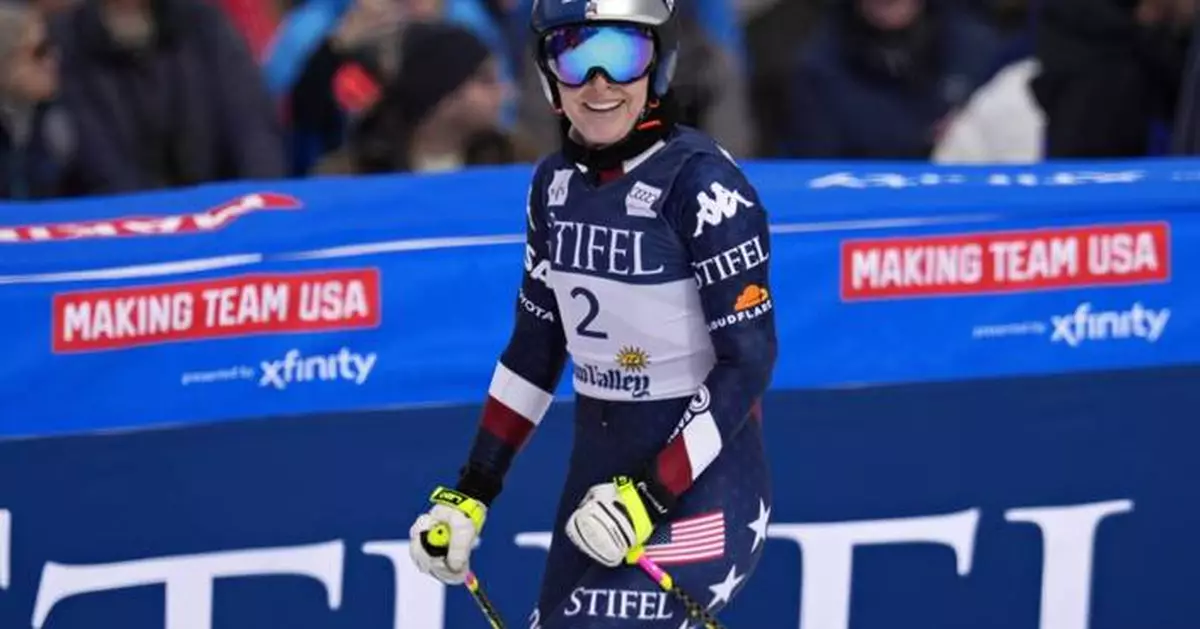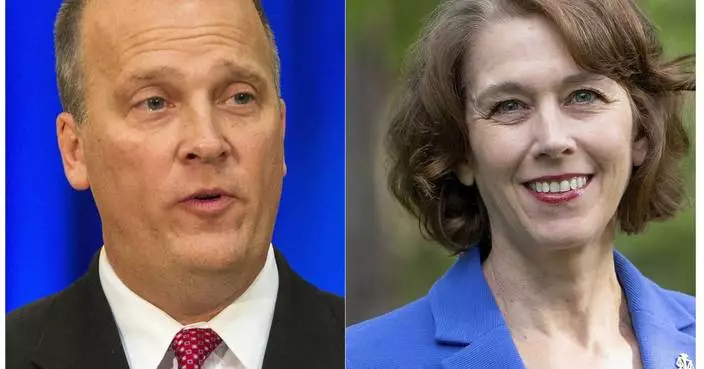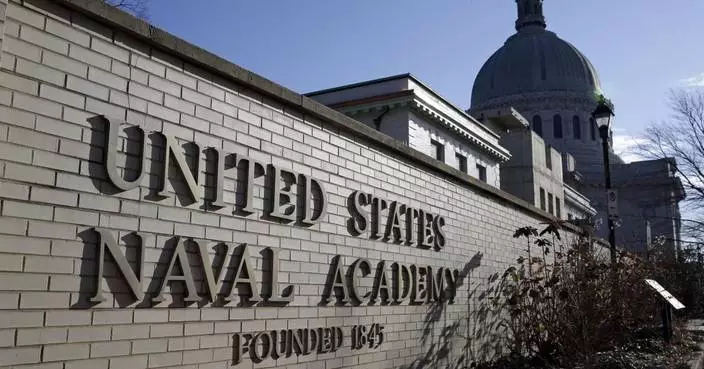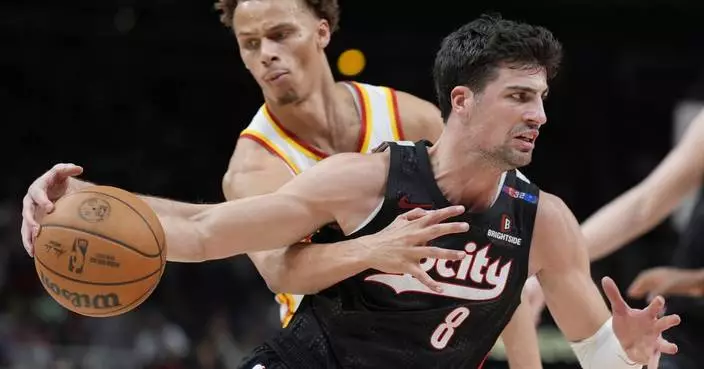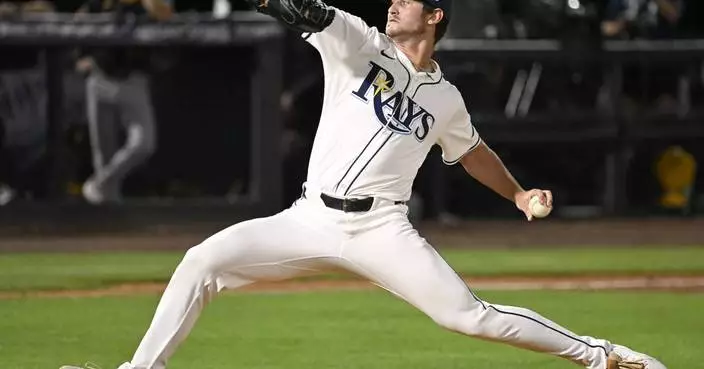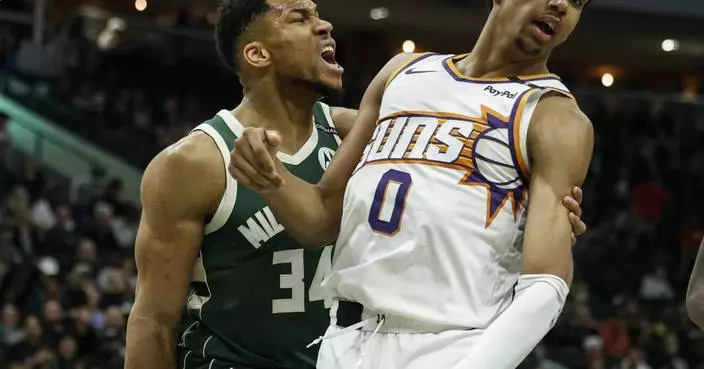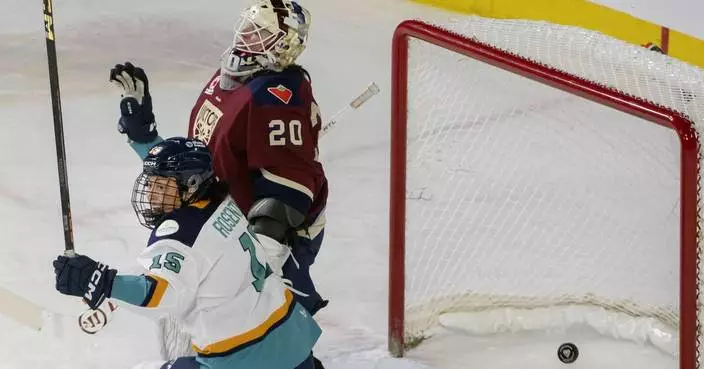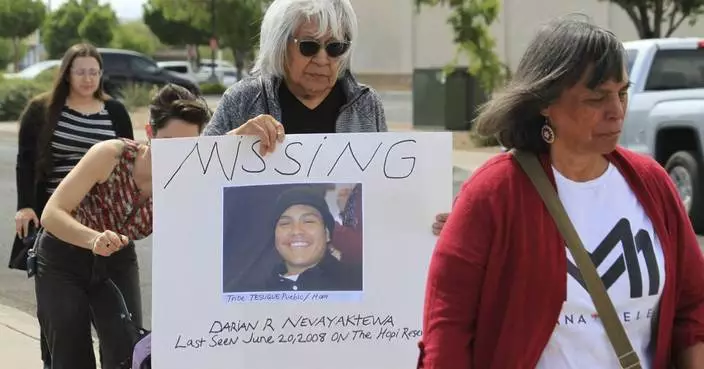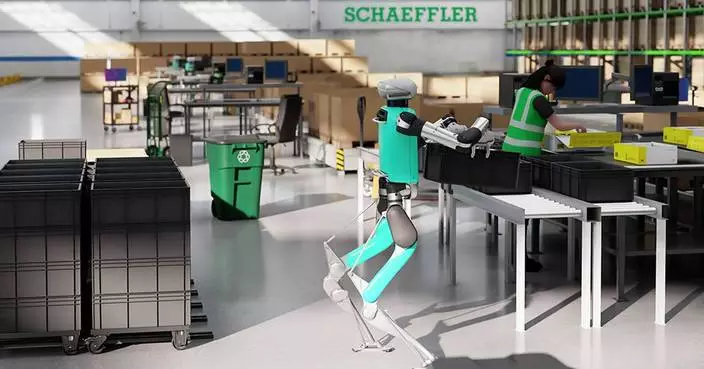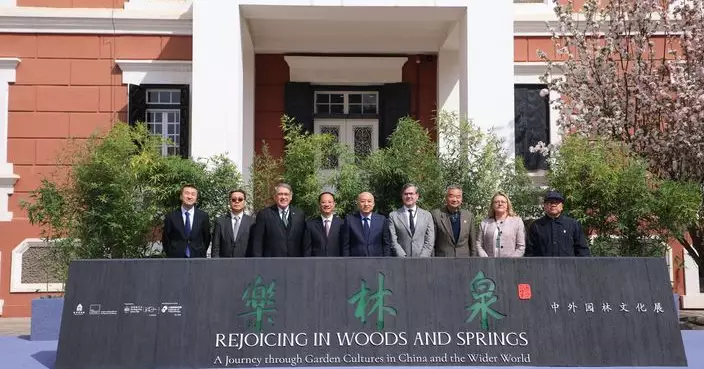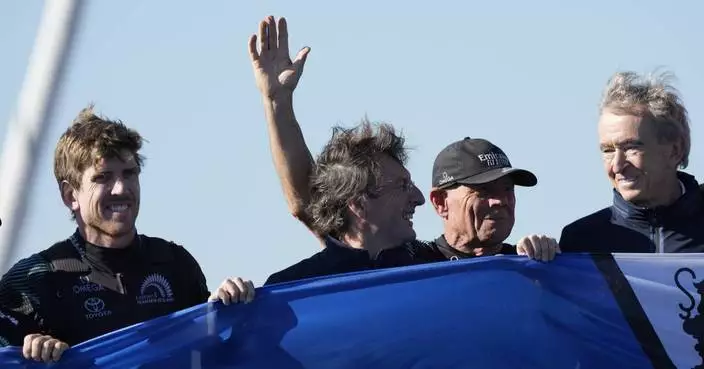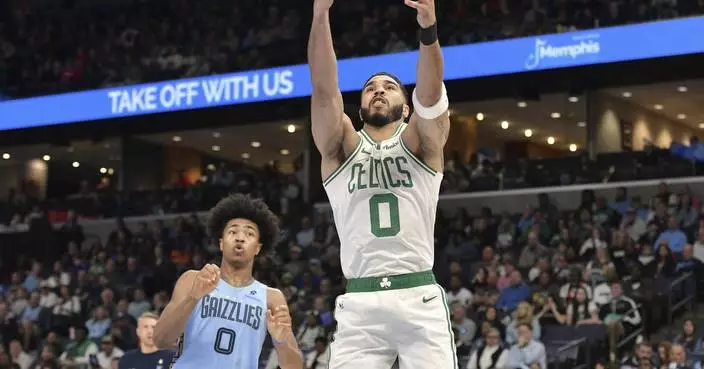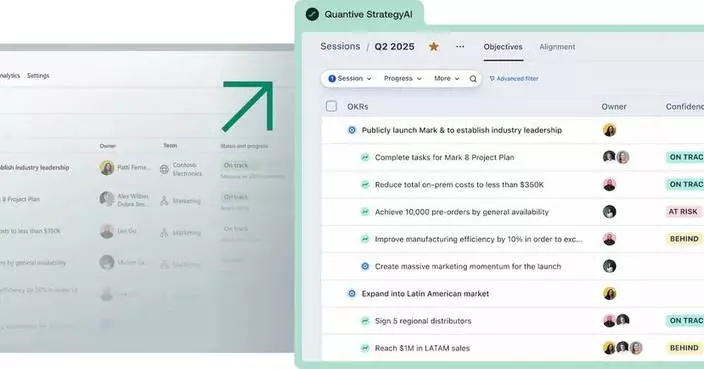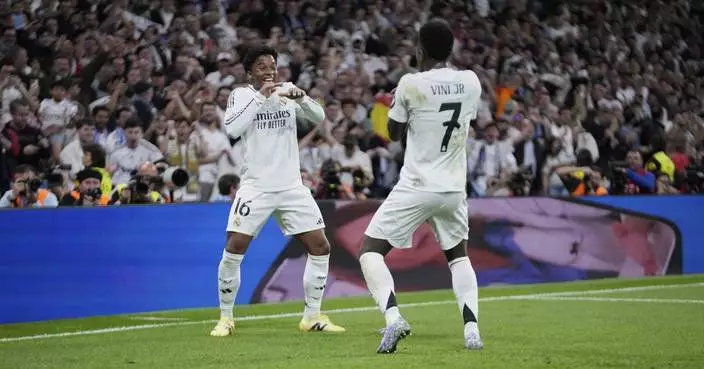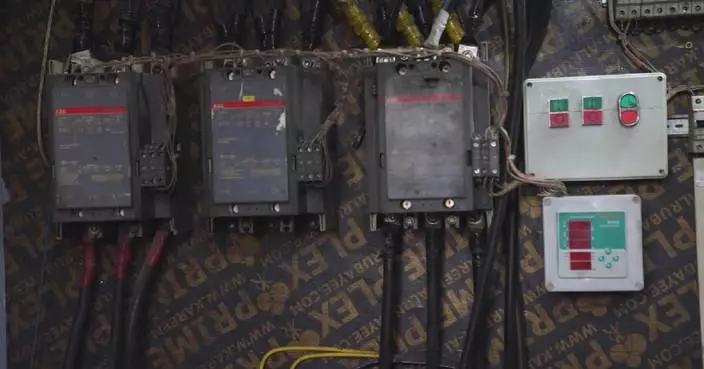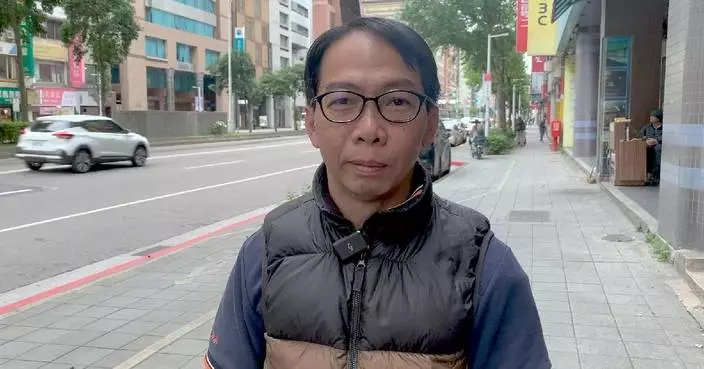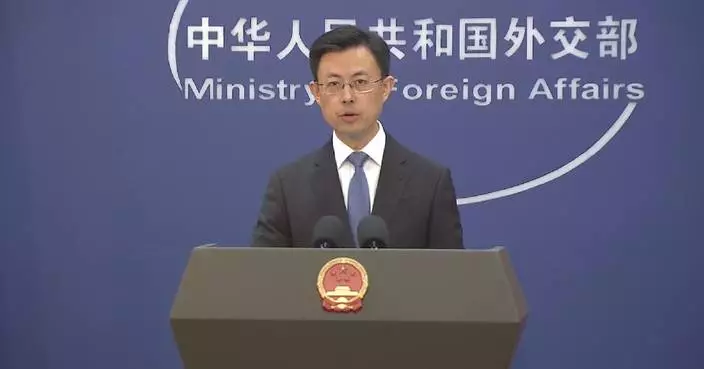SUN VALLEY, Idaho (AP) — Some nights, Lindsey Vonn drifts off to sleep by visualizing the downhill course at the upcoming Olympics in Italy.
That’s been the American ski racer's drive, her reason behind this comeback at 40 and after a partial knee replacement. Everything she’s done this season — the races, the testing of her skis and boots, the physio — is designed with the 2026 Milan-Cortina Olympics in mind. After that, medal or no medal, she will retire again.
Although, there’s a provision in her plans — if she’s in contention for a downhill or super-G season-long title, Vonn will remain on the circuit.
“This season is literally just a test run and a trial run to see what I can do,” Vonn said in an interview with The Associated Press leading into the World Cup finals, where on Friday she turned in the 12th-fastest time during a downhill training session on the new course at Sun Valley. “Just try to get the kinks worked out so that next year will be hopefully more like it used to be and more of a routine.”
When Vonn came out of retirement after nearly six years away from World Cup racing, Cortina was firmly on her mind. It's a venue where she's always found speed and success, as evidenced by her six World Cup downhill wins and six more in the super-G.
“These Olympics, it’s all I really wanted to do,” said Vonn, who has 82 career World Cup wins to go with three Olympic medals, including downhill gold from the 2010 Vancouver Games. “Cortina is one of my favorite places, so that’s the carrot that was dangling in front of me.
"As soon as that’s gone, then I can go back to skiing some powder and playing tennis and living the life that I’ve been living for the last six years.”
Before receiving her titanium knee a year ago in April, an ice pack was her constant companion. She carried it everywhere to sooth the ever-aching pain.
Not once has she used ice on her knee this season.
“Even when I crash, it doesn’t hurt. Well, not that knee anyway,” cracked Vonn, who took a recent timeout from training to attend Paris Fashion Week. "It’s surreal to really think about where I was before my surgery and where I am now. I was living a completely different life, and I was just trying to get rid of my pain. And now I’m back trying to make it to the Olympics next year.
"I’m physically in such a better place. I feel so good and it makes me a lot happier. My life is just really good right now.”
She has two races left in her comeback season — a downhill Saturday and then a super-G on Sunday. She's relishing the chance to compete in Sun Valley, given it's the closest she will get to racing on home snow. Vonn didn’t have enough points to be in the field at the World Cup races in Beaver Creek, Colorado, last December.
Instead, she served as a forerunner that weekend to test out the course.
“I was ready. I think I would have had a pretty good result," Vonn said of Beaver Creek. "This weekend, hopefully I can ski my best. It would mean a lot to me. It’d be a great way to end the season and to give me confidence going into next year.”
In years past, the end of a season usually meant some extended down time to heal — or surgery.
This season, she's taking just two weeks off and then heading over to Europe to conduct more testing of her Head ski equipment. She keeps a detailed notebook and spreadsheet of how different boots feel, and how different skis perform in various snow conditions.
Given Vonn didn’t have much of a prep period heading into this season, U.S. women's speed coach Alex Hoedlmoser was impressed by the progress she made.
“She’s very, very fast again,” Hoedlmoser said. “She’s definitely going to step up again next year.”
Vonn doesn’t feel that far off from notching a win, either. Her best finish this season was fourth in a super-G on Jan. 12 in St. Anton, Austria. It was a race won by teammate Lauren Macuga.
“I don’t need to win to feel complete with my life, but I think it would mean a lot to me,” Vonn said. “I love ski racing and I love going fast. It is a passion and I love the adrenaline. I love everything about it, but it is not the sole thing in my life.”
AP skiing: https://apnews.com/hub/alpine-skiing
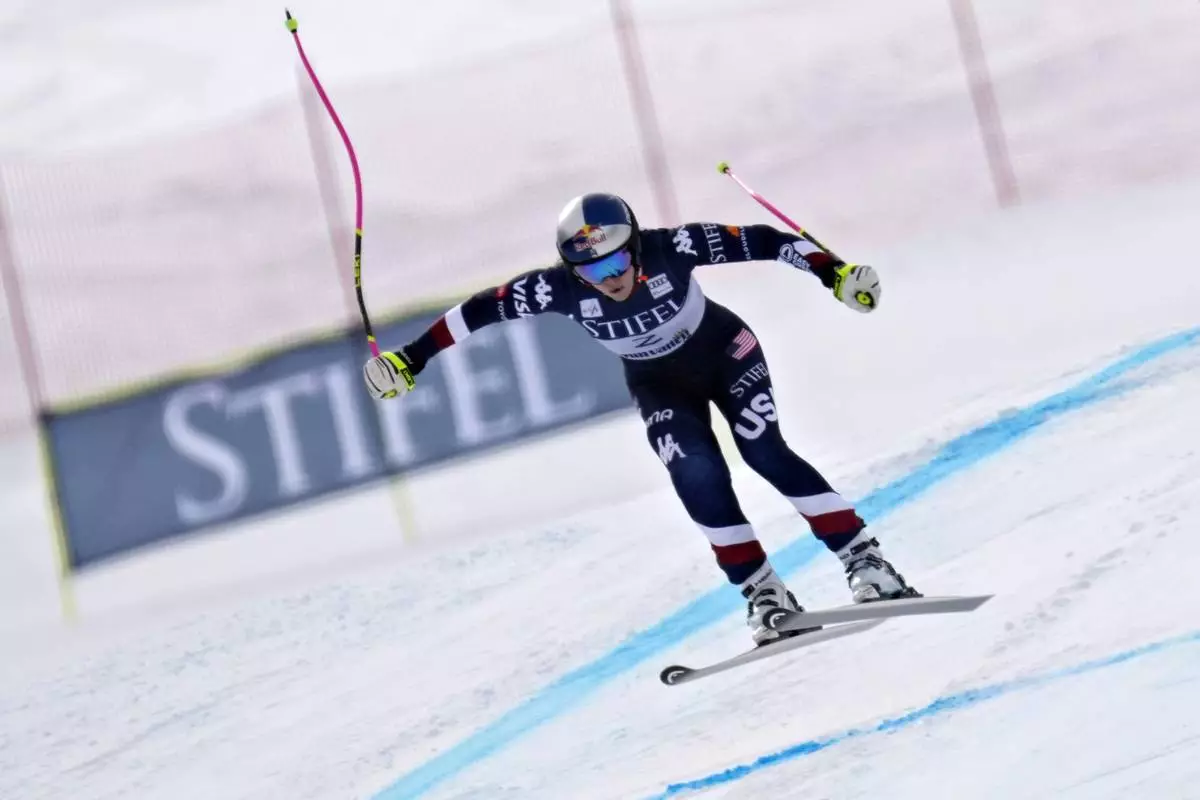
United States' Lindsey Vonn skis during a women's downhill training run at the World Cup Finals, Friday, March 21, 2025, in Sun Valley, Idaho. (AP Photo/John Locher)
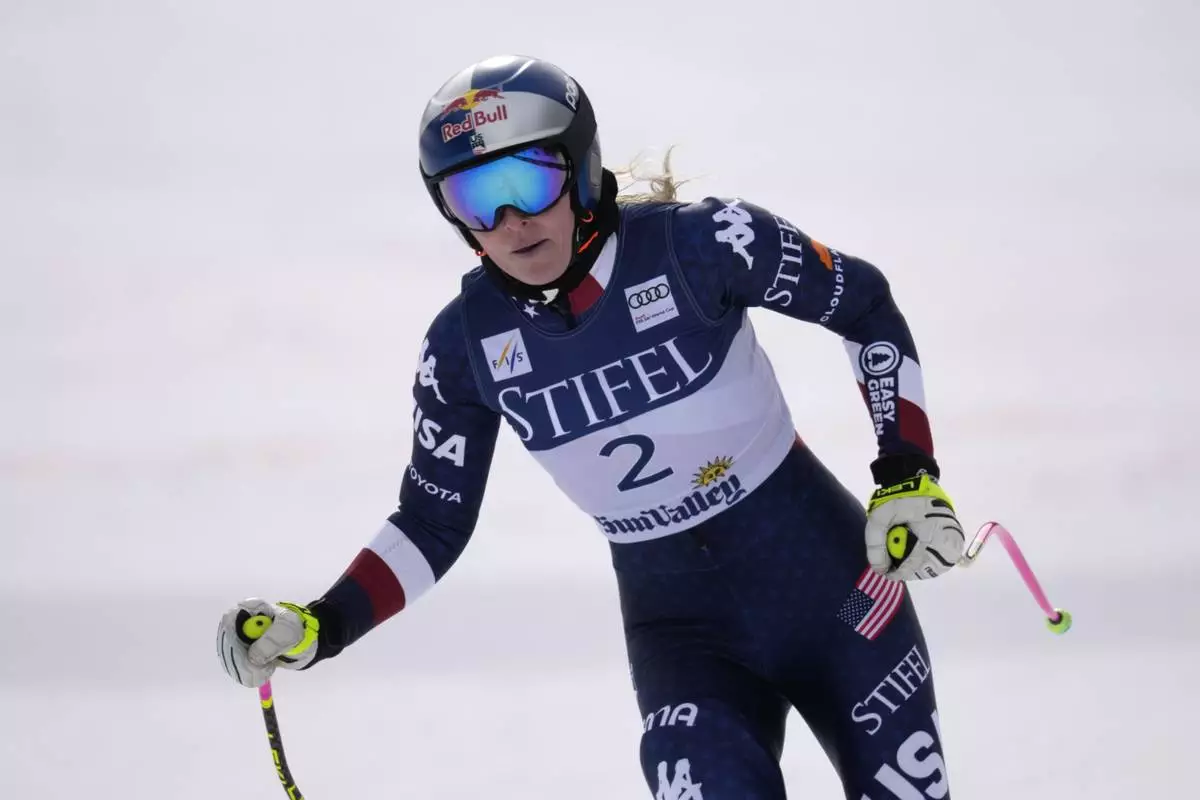
United States' Lindsey Vonn skis during a women's downhill training run at the World Cup Finals, Friday, March 21, 2025, in Sun Valley, Idaho. (AP Photo/John Locher)
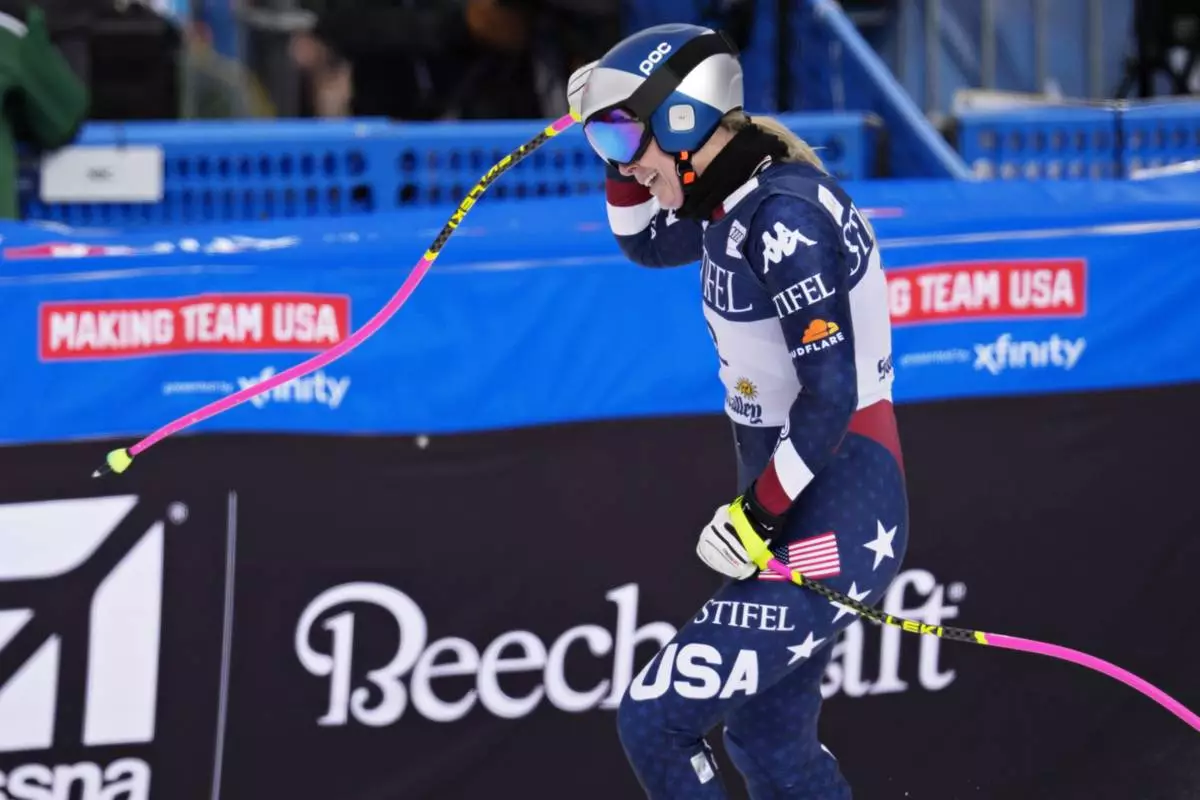
United States' Lindsey Vonn reacts after a women's downhill training run at the World Cup Finals, Friday, March 21, 2025, in Sun Valley, Idaho. (AP Photo/John Locher)
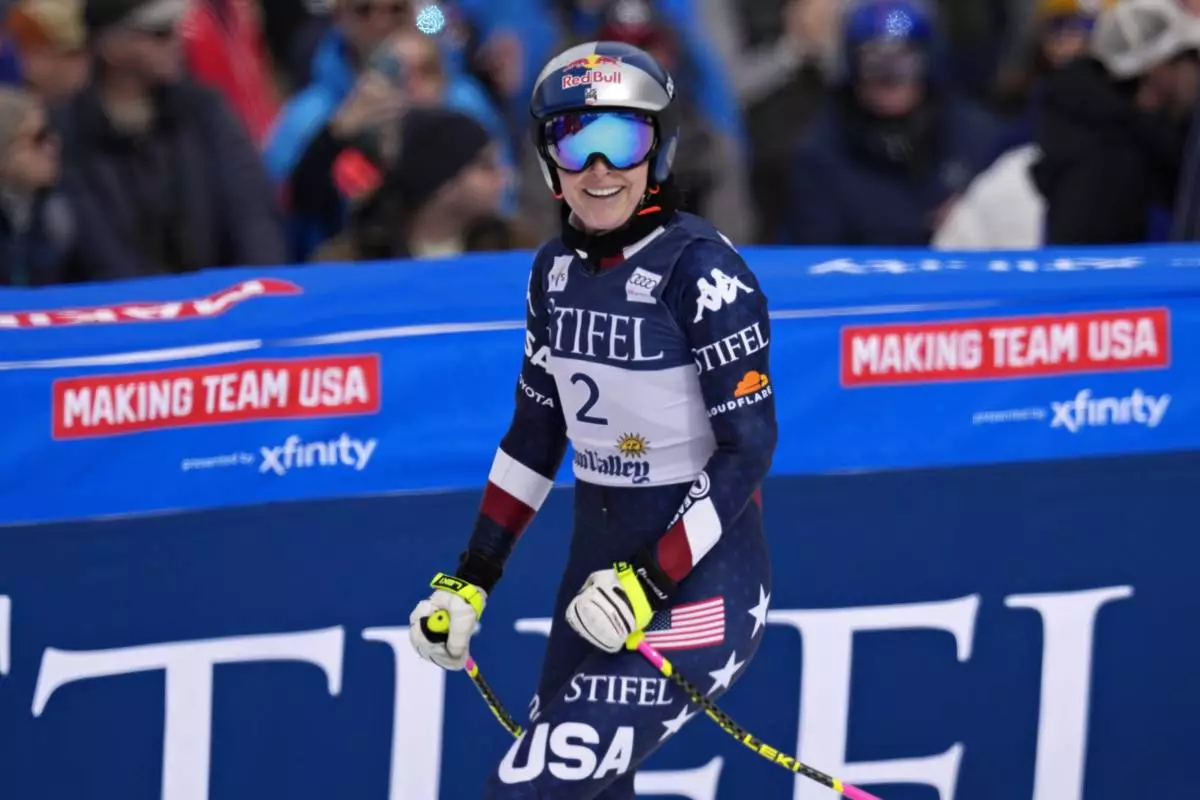
United States' Lindsey Vonn reacts after a women's downhill training run at the World Cup Finals, Friday, March 21, 2025, in Sun Valley, Idaho. (AP Photo/John Locher)
MADISON, Wis. (AP) — Wisconsin voters decided Tuesday to enshrine the state's voter ID law in the state constitution.
The state was also electing its top education official, who will guide policies affecting K-12 schools during President Donald Trump’s second term, will be elected Tuesday in a race between the teachers union-backed incumbent and a Republican-supported critic.
Both contests had sharp partisan divisions, though they have drawn far less spending and national attention than the race for control of the Wisconsin Supreme Court. Polls closed at 8 p.m. CDT.
Here’s a look at the two contests:
Wisconsin’s photo ID requirement for voting will be elevated from state law to constitutional amendment under a proposal approved by voters.
The Republican-controlled Legislature placed the measure on the ballot and pitched it as a way to bolster election security and protect the law from being overturned in court.
President Donald Trump trumpeted the measure's approval on his social media platform, Truth Social, calling it “maybe the biggest win of the night.”
“It should allow us to win Wisconsin, like I just did in the presidential election, for many years to come!" he said.
Trump narrowly lost Wisconsin to Joe Biden in 2020 but defeated Kamala Harris last November election to claim its 10 electoral votes.
Elon Musk, the world’s richest man, who is leading Trump’s efforts to shrink the federal government, also noted the outcome on his social media platform, X, saying: “Yeah!”
Democratic opponents argued that photo ID requirements are often enforced unfairly, making voting more difficult for people of color, disabled people and poor people.
All Voting is Local, a nonpartisan voting rights organization, warned that placing the photo ID mandate in the constitution will make it harder to vote.
“We should not be purposefully leaving eligible voters behind by setting up additional barriers to the ballot, but unfortunately, those in the Badger State have one more step to take before voting,” Sam Liebert, the organization's state director, said in a statement.
Wisconsin voters won't notice any changes when they go to the polls. They will still have to present a valid photo ID just as they have under the state law, which was passed in 2011 and went into effect permanently in 2016 after a series of unsuccessful lawsuits.
Placing the photo ID requirement in the constitution makes it more difficult for a future Legislature controlled by Democrats to change the law. Any constitutional amendment must be approved in two consecutive legislative sessions and by a statewide popular vote.
Wisconsin is one of nine states where people must present photo ID to vote, and its requirement is the nation’s strictest, according to the National Conference of State Legislatures. Thirty-six states have laws requiring or requesting that voters show some sort of identification, according to the NCSL.
The race to lead the state Department of Public Instruction pits incumbent Jill Underly, who is backed by Democrats and the teachers union, against consultant Brittany Kinser, a supporter of the private school voucher program who is endorsed by Republicans but calls herself a moderate.
Wisconsin is the only state where voters elect the top education official but there is no state board of education. That gives the superintendent broad authority to oversee education policy, from dispersing school funding to managing teacher licensing.
The winner will take office at a time when test scores are still recovering from the pandemic, the achievement gap between white and Black students remains the worst in the country and more schools are asking voters to raise property taxes to pay for operations.
Underly’s education career began in 1999 as a high school social studies teacher in Indiana. She moved to Wisconsin in 2005 and worked for five years at the state education department. She also was principal of Pecatonica Elementary School for a year before becoming district administrator.
Underly, 47, was elected state superintendent in 2021 and was endorsed by the union, the Wisconsin Education Association Council, as well as the Wisconsin Democratic Party and numerous Democratic officeholders.
Kinser, whose backers include the Wisconsin Republican Party and former Republican Govs. Tommy Thompson and Scott Walker, is vying to become the first GOP-affiliated person to hold the superintendent position in more than 30 years.
She worked for almost 10 years as a special education teacher and instructional coach in Chicago Public Schools. After that she spent 15 years at public charter schools in Chicago, California and Milwaukee.
In the Milwaukee area, Kinser worked for Rocketship schools, part of a national network of public charter institutions, and became its executive director for the region.
In 2022 she left Rocketship for City Forward Collective, a Milwaukee nonprofit that advocates for charter and voucher schools. She also founded a consulting firm where she currently works.
Kinser, 47, tried to brand Underly as being a poor manager of the Department of Public Instruction and keyed in on her overhaul of state achievement standards last year.
Underly said that was done to better reflect what students are learning now, but the change was met with bipartisan opposition including from Democratic Gov. Tony Evers, who was previously state superintendent himself. Evers has not made an endorsement in the race.
Kinser said the new standards lowered the bar for students and made it more difficult to evaluate how schools and districts are performing over time.
Underly portrayed Kinser as nothing more than a lobbyist who doesn’t care about public education. Kinser supports the state’s private school voucher and charter school program, which Democrats and Underly oppose on the grounds that such programs siphon needed money away from public schools.
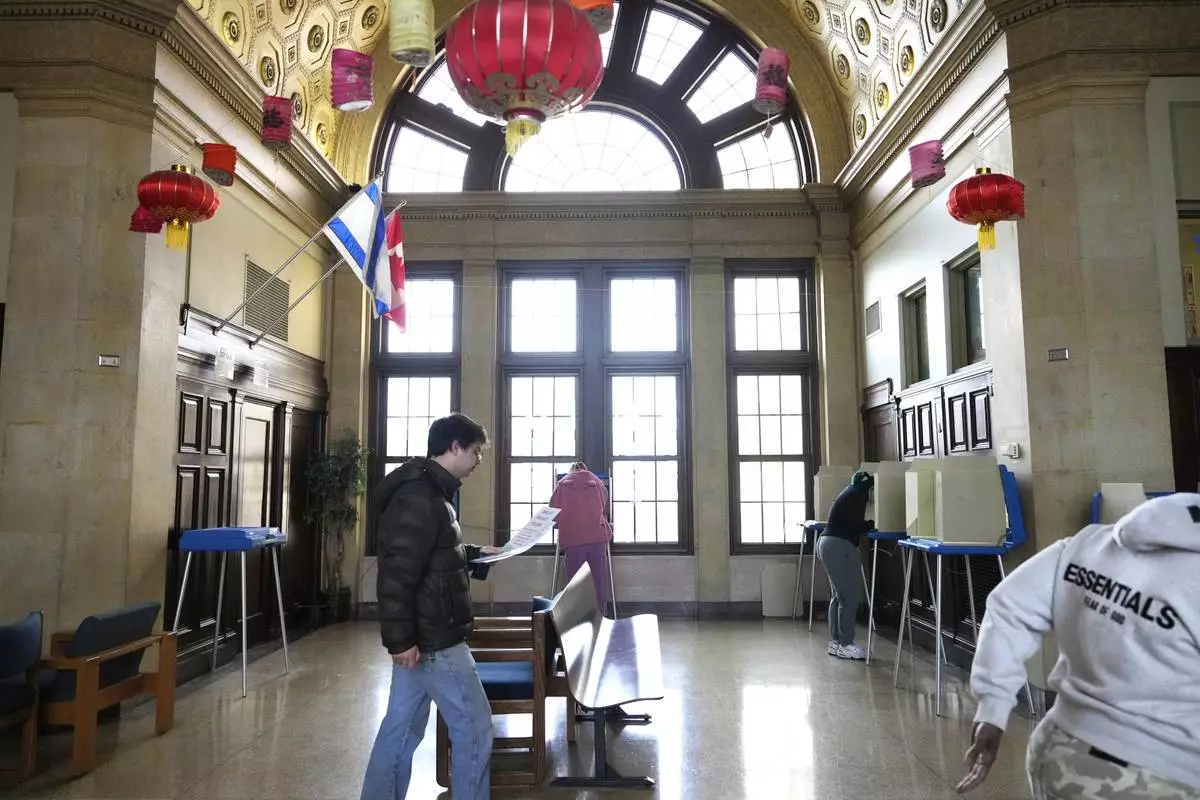
Maximillian Marquez, left, walks to a voting booth at the Milwaukee Academy of Chinese Language to cast a ballot in the state's Supreme Court election, Tuesday, April 1, 2025, in Milwaukee. (AP Photo/Kayla Wolf)
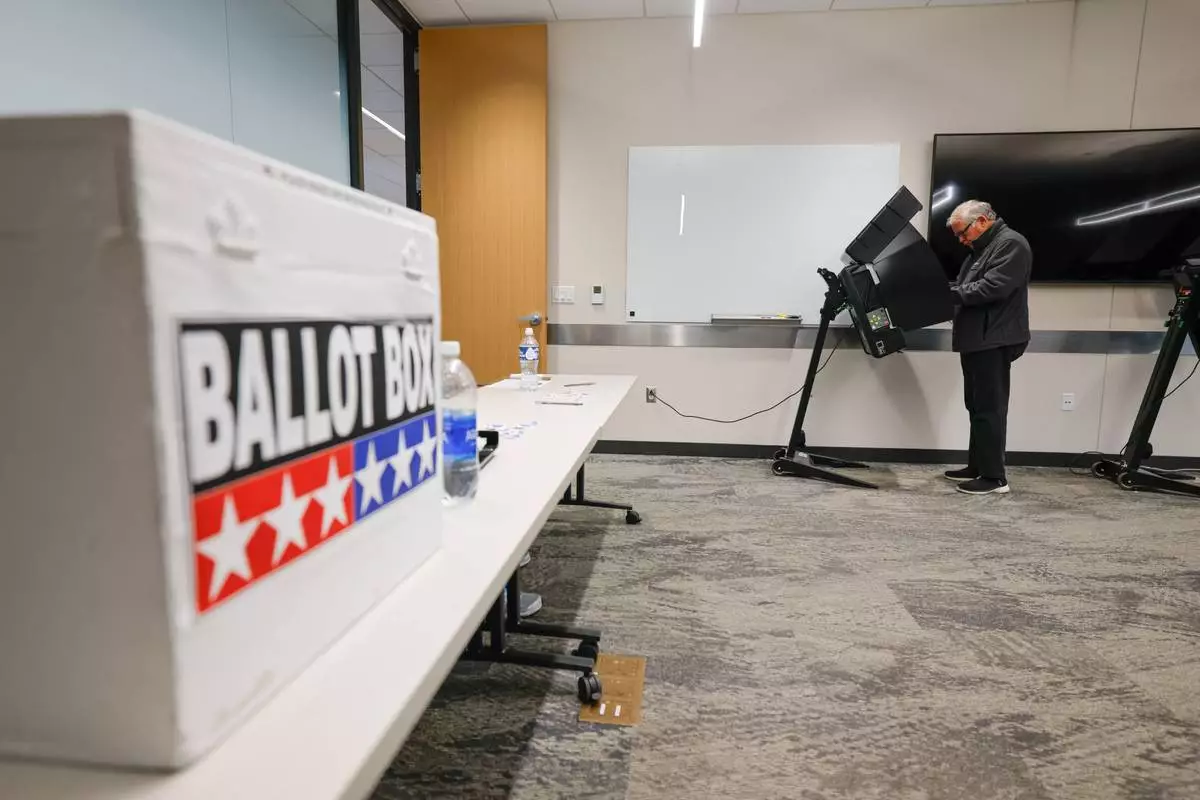
A voter casts a ballot during early voting in Waukesha, Wis., Tuesday, March 18, 2025. (AP Photo/Jeffrey Phelps)






